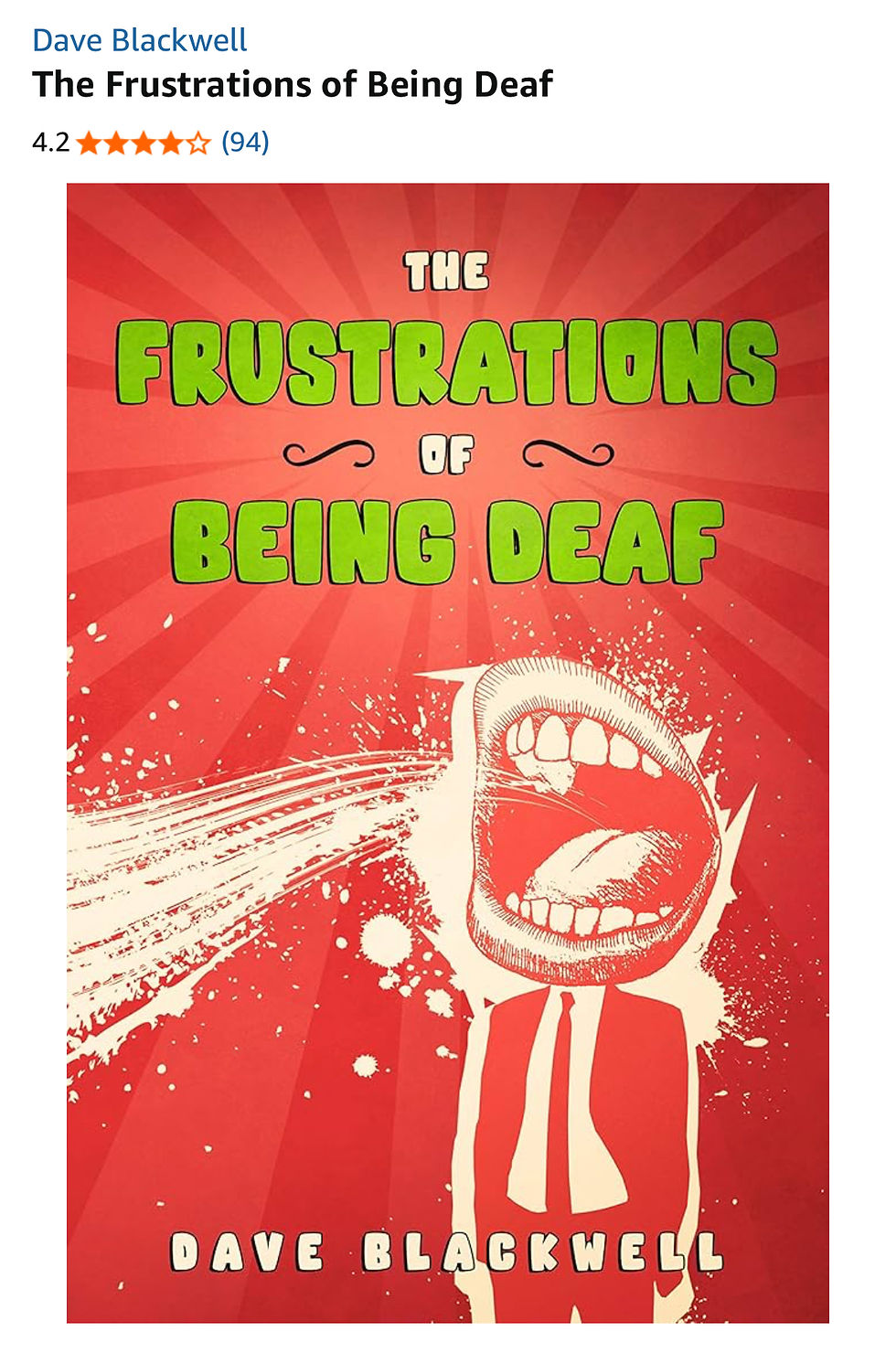Hearing Tactics for the Unready...
- Sally Jackson RHAD

- Mar 12, 2020
- 3 min read

So you’ve had your hearing test, and hopefully your friendly audiologist has explained your results and prognosis in detail. You know you have a slight hearing loss but you’re not ready to wear hearing aids every day. What can you do? First, please do listen to the advice you receive with an open mind - and consider aids if they have been strongly recommended. But if they’re just not right for you right now, then try these tactics:
1) Disclose your loss. If people know you are hard of hearing, they can help you. Ask them to face you when speaking to you, at all times. In the car, this will help even if you’re driving and can’t look at them. This is because high frequency sound bounces off surfaces and gets lost before it reaches your ears, so when someone projects their voice, more high frequency sounds reach you (t’s, s’s, f’s and sh sounds). If you are looking at them, you benefit from visual cues, lipreading, and hearing with both ears equally.
2) Position. Have the speaker face the light so you get every detail. Face them head on so both your ears collect the sound. And the key in noisy background sound - have your back to the corner, to reduce background noise.
3) Rephrase, not repeat. Ask the person to rephrase the question, not repeat it. You have a much better chance with tricky words if they change the information. If you’re not getting it still, ask them to confirm the subject they are talking about before they try again. I.e. if they tell you they’re talking about ‘weather’, you are more likely to pick up that that question was ‘have you had any snow in Brighouse?’. Research confirms that knowing the subject vastly increases the number of words correctly interpreted.
4) Phones. Use a mobile, not a landline, if possible. Landline phones carry a limited frequency bandwidth. The letter ‘s’, for instance, doesn’t exist on a landline, it’s too high pitched. A great article I read called “Forry, Wrong Number” addresses this in detail! Mobiles carry the whole bandwidth, which is why people find them clearer.
Using the loudspeaker means you hear with both ears, which can be beneficial. Ideally though, a phone which directs the call straight to your hearing aids would be much easier to hear on, because the sound would be shaped to your hearing loss, but we‘re not ready for that, so... :-)
Finally, the phonetic alphabet is a lifesaver. Ask people to spell out a tricky word as “S for Sierra, A for Alpha” etc. If you do it first, they will likely follow suit. So saying, was that “S for Sierra or F for Foxtrot?“ is likely to get them to respond with the phonetic version.
These tactics are also a good way to boost the performance of your more basic aids. Advanced aids reduce background noise and enhance speech. But by sitting with your back to the corner or wall in a restaurant, you can make it easier to hear with more basic aids, or no aids at all.
But please, please, do think about having a free home trial of hearing aids. Tactics are great, but nothing beats the ease and reduced listening effort of having help with your hearing!




Comments